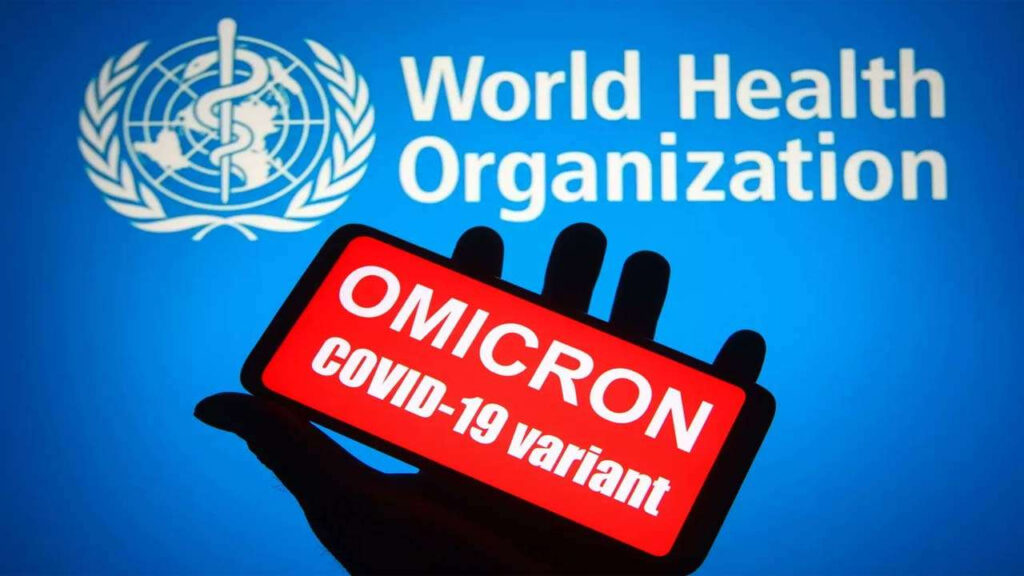Manas Dasgupta
NEW DELHI, Jan 24: In a major relief to the Corona patients, the less severe Omicron variant have been found in 88 per cent of the samples sent for genome sequencing in Mumbai. According to official sources on Monday, the latest round of genome sequencing carried out at the civic-run Kasturba Gandhi Hospital in Mumbai has detected the Omicron variant in 88 per cent of the samples, indicating that the highly transmissible new variant has dominated over the Delta variant.
Out of the 363 samples sequenced, 320 (88%) showed the presence of the Omicron variant, 30 (8%) showed Delta derivatives, three (0.8%) had the Delta variant and 10 (2.7%) had others. This is in sharp contrast to the previous genome sequencing conducted last month in which the latest variant of concern was detected in just 55% of the samples.
INSACOG, the consortium of national laboratories that is tracking variants of the virus, has declared that the Omicron variant is in the community transmission stage in India and has become dominant in several metros. Experts believe that the same pattern was expected to evolve in other major cities and towns in the country with less severe but highly infectious Omicron variant slowly replacing the more dangerous Delta variant.
Dr Shashank Joshi, member of the Covid-19 task force, said, “Considering the global pattern, it was expected that Omicron will gradually dominate over Delta variants. But it shouldn’t be taken lightly and (you shouldn’t) put your guard down. Although the severity is less in Omicron, people with underlying health issues need to be extra cautious.”
Meanwhile, the health ministry’s revised guidelines for management of Covid in children and adolescents below 18 years have advised against the use of antivirals or monoclonal antibodies, irrespective of the severity of infection. Children below five years need not wear masks, according to the guidelines.
The new guidelines supersedes the previous version on June 16, 2021. The Comprehensive Guidelines for Management of COVID-19 in children and adolescents below 18 years were reviewed by a group of experts in view of the current surge mainly attributed to the Omicron variant of concern. The available data from other countries suggest that disease caused by the Omicron variant is less severe; however, there is need for a careful watch, as the current wave evolves. These guidelines are dynamic, and will be reviewed and updated on availability of new evidence, according to the Union Ministry of Health and Family Welfare.
The use of antivirals or monoclonal antibodies is not recommended for children less than 18 years of age, irrespective of the severity of infection. “As of now in the absence of efficacy and safety data, the use of antivirals such as Remdesivir, Molnupiravir, Favipiravir, Fluvoxamine and monoclonal antibodies such as Sotrovimab, Casirivimab + Imdevimab are not recommended for children less than 18 years of age irrespective of severity of illness,” is the specific recommendation made as part of the revised guidelines.
COVID-19 is a viral infection and antimicrobials have no role in the management of uncomplicated COVID-19 infection. Overall the management of children remains the same. Mainstay of treatment for fever is to give paracetamol 10-15mg/kg/dose which may be repeated every 4-6 hours. For cough, throat soothing agents and warm saline gargles in older children and adolescents have been advised. Ensuring oral fluids to maintain hydration and a nutritious diet is among the recommendations. No other COVID-19 specific medication is needed for mild cases. For mild cases RT-PCR tests are not being advised. Several paediatricians said they have instructed families to stay in isolation for a week. However Covid detection tests are required for the ones who are hospitalised.
Masks are not recommended for children aged five years and under. Experts said they do not wear it properly and may have issues with breathing if there is underlying asthma or they are playing. Some parents can be obsessed and force the child to wear the mask and hence it is not mandatory for the child below five to wear one. Children aged 6-11 years may wear a mask depending on the ability of the child to use a mask safely and appropriately under direct supervision of parents/guardians. Children aged 12 years and over should wear a mask under the same conditions as adults. It is important to ensure hands are kept clean with soap and water, or an alcohol-based hand rub, while handling masks, the guidelines said.

